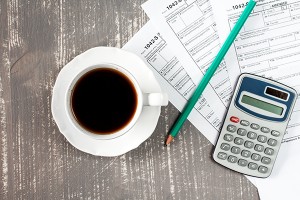If you are a self-employed sole proprietor or operate an LLC taxed as an S-corporation, any expense that your business incurs that is ordinary and necessary is deductible under Section 162 of the Internal Revenue Code. Therefore, list the total spent on each of the expense categories listed below:
- Accounting, legal and professional fees;
- Advertising;
- Car expense – indicate total annual miles driven, then break out total annual business miles plus parking and tolls including business log with date, miles driven, business purpose and destination or
total annual miles driven, actual fuel invoices, auto insurance, repairs and total miles driven and total annual business miles plus parking & tolls; - Fixed Assets – If you bought a vehicle, computer, equipment, office furniture or placed it in service during the tax year, even if you already owned it. Also provide a copy of the purchase invoice so the total cost can be expensed it under IRC Sec. 179;
- W-3 – Salaries that your company paid to others. List officer and shareholder salary separately;
- Employer share of employment taxes like FICA and FUTA;
- Commissions or fees paid to other contractors. Have them fill in form W-9 if they were not incorporated so a 1099 can be issued by February 1;
- If you already issued them a 1099, please provide the 1096 showing total independent contractors paid.
- Professional Liability Insurance, Workmans Compensation Insurance and Health insurance;
- Office Supplies;
- Materials or Purchase of inventory for resale;
- Travel, Hotel, Airfare and Car Rental;
- Meals – keep track of date, place, person entertained and business purpose. If you do not have a digital calendar (such as Outlook or Google Calendar) then you need a receipt for everything If you have a digital calendar then you only need receipt if you pay more than $75.00;
- Telephone including local, long distance, fax, land lines and mobile;
- DSL, cable and internet charges;
- Postage including shipping costs like Fed Ex and UPS;
- Continuing education and business seminars and conferences;
- Interest expense paid on business loans and provide year end balances;
- Rent for office space or equipment;
- Utilities like electricity, fuel oil, water or gas.
- Prior year PA franchise (Capital Stock) tax from Page 2 of the PA RCT-101;
- Prior Year Local Income Tax paid;
- Total State sales tax paid if you included it in gross sales revenue.
Never pay any personal expenses from your business bank account. Instead take draws from your business account and transfer money to your personal account and pay the personal bills directly from your personal account. Contact Spadea & Associates, LLC at 610-521-0604, if you have any questions or need your tax returns prepared.








